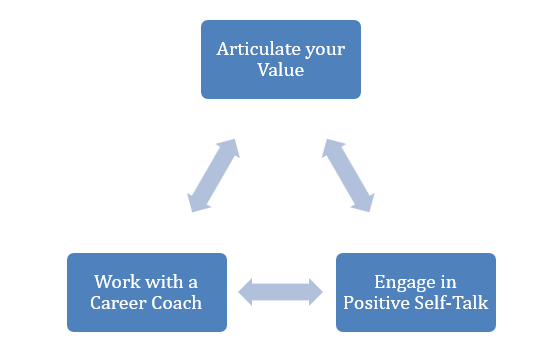
—-
“I just don’t have enough experience!”
How often do you find yourself thinking this? It’s a common statement, and surprisingly, it’s not just from those who are new to the industry. You might be someone with years, perhaps even decades, of experience under your belt. Yet, when you think about your career, you feel like you’re lacking. You look at your LinkedIn profile or resume and fail to see the wealth of experience you actually possess. It’s as if you’re sitting on a goldmine but convinced it’s merely a pile of rocks.

Why does this happen?
A lot of it boils down to how you perceive your own journey.
When you’re deeply involved in your daily grind, it’s challenging to take a step back and appreciate the bigger picture. Imagine you’re in a room full of hard copy folders which have been created for an ISO management system. Each folder is packed with documented procedures and records about every tiny bit of the business and its system. It’s like trying to find a needle in a haystack. All these documents add up to the big picture of the system, but when you’re up close, it’s hard to see which piece of information matters and how they all link up until you’ve extracted all of them individually and joined the dots.
So, what’s the root of this self-doubt? Often, it’s because you’re your own harshest critic. You look at others and think they’ve got everything figured out, leaving you wondering why you feel behind. Or perhaps the rapid pace of change in your industry makes you feel like you’re constantly trying to catch up, never quite feeling ‘there’ yet.

Embarking on a career change can often stir up a whirlwind of self-doubt and questioning. Are we equipped with the right skills? Do we possess enough experience? Such uncertainties are common, yet they hold the potential to catalyze growth and transformation. Dr. Albert Bandura’s, a renowned Professor Emeritus at Stanford University, concept of self-efficacy, the belief in one’s capabilities to achieve a goal or an outcome, sheds light on this phenomenon. His influential work emphasizes that our confidence in our ability to effect change is pivotal to undertaking new endeavors. This article from TED Ideas article delves into how the principles of self-efficacy can empower us to navigate the uncertainties of career transitions, highlighting the transformative power of positive self-talk. Through understanding and applying these principles, we can transform our self-doubt into a driving force for professional growth and self-discovery.

Career Advancement Triangle
There are 3 simple interconnected methods to overcome your doubts about your experience. As you move through this cycle, each step feeds into the next. Knowing your value helps you talk to yourself more positively. Positive self-talk boosts your engagement with a career coach, and insights from coaching allow you to articulate your value even more strongly. Over time, this cycle becomes a self-reinforcing loop that propels you towards continual personal and professional growth and success.

—
Articulate Your Value: This step is about recognizing and acknowledging your own worth and capabilities. It involves taking stock of your past experiences, skills, and successes, and understanding how they translate into value in your career. This forms a solid foundation for both self-talk and coaching.
Engage in Positive Self-Talk: With a clear understanding of your value, you can begin to change the narrative in your head. Positive self-talk reinforces your value, builds confidence, and helps you internalize your true worth. This positive mindset makes you more receptive to coaching, as you start to believe in the possibility of your success.
Work with a Career Coach: A career coach can provide external validation of your worth and help you identify opportunities to leverage your strengths. They guide you in strategizing your career moves and in setting realistic, achievable goals. The insight and encouragement from a coach can reinforce positive self-talk and help you better articulate your value in the professional world.
Your Next Steps
- Reflect and Document – take some time to map out your career path so far. Write down the key roles, projects, skills you’ve gained, and any achievements or feedback you’ve received. This reflection will form the basis of your value proposition.
- Practice Mindfulness and Affirmation – Create a list of positive affirmations based on the value you’ve identified. Regularly remind yourself of these affirmations, especially when doubts creep in. This will help cement your self-belief and maintain a positive outlook.
- Schedule a Coaching Session – Reach out to a career coach for an initial consultation. Discuss your findings and affirmations and start crafting a plan together that leverages your strengths and addresses any gaps or goals for your career growth.
View comments
+ Leave a comment